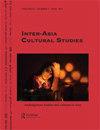Postcolonial aging, amah, and diaspora in A Simple Life
IF 0.4
4区 社会学
Q4 ANTHROPOLOGY
引用次数: 0
Abstract
ABSTRACT Based on the life story of the Hong Kong film producer, Roger Lee, A Simple Life/Taojie (Ann Hui [2011] 2012) is a semi-fictional biographical film about the life of Taojie, an amah (Cantonese migrant domestic servant) who served three generations of Lee's family for more than sixty years. The intervention of this essay is two-fold. First, this essay situates A Simple Life in the burgeoning but understudied journalistic and documentary discourse on aging as a postcolonial condition in Hong Kong since the 2010s. An intertextuality between the film and its adjacent media productions, such as journalistic reportage and TV documentaries, reveals the social anxiety about the lack of holistic and accessible elderly care in Hong Kong's medical and social welfare system and the profit-driven nursing home industry. Second, this essay argues that A Simple Life responds to the postcolonial anxiety of old age by articulating an intergenerational kinship through Roger Lee and Taojjie, a diasporic Asian icon of amah that is localized, nationalized, internationalized under the framework of CEPA (Hong Kong and Mainland Closer Economic Partnership Arrangement). Multiple imaginaries of home, family, and community—Roger Lee's home, a local nursing home, Roger Lee's transnational family, and a new Hong Kong–Mainland cinematic community—co-exist in this film as interconnected and interdependent sites of care, demonstrating how a postcolonial, national, and transnational sense of home and belonging are simultaneously articulated under the framework of CEPA.《简单的生活》中的后殖民老龄化、阿玛和散居
摘要:根据香港电影制片人李的生平,安慧〔2011〕2012年的《简单的生活/陶洁》是一部半虚构的传记电影,讲述了陶洁的生活,她是一位为李家三代人服务了60多年的阿妈。这篇文章的介入是双重的。首先,本文将《简单的生活》置于2010年代以来香港新兴但研究不足的新闻和纪录片话语中,将老龄化作为后殖民条件。这部电影与新闻报道和电视纪录片等邻近媒体作品之间的互文性揭示了社会对香港医疗和社会福利体系以及利润驱动的养老院行业缺乏全面和方便的养老护理的焦虑。其次,本文认为,《简单的生活》回应了后殖民时代的老年焦虑,通过李和在《香港与内地更紧密经济伙伴关系安排》框架下本地化、国有化和国际化的散居亚洲amah偶像陶杰表达了代际亲缘关系。家、家庭和社区的多重想象——李的家、一家当地养老院、李的跨国家庭和一个新的香港——大陆电影社区——在这部电影中作为相互关联和相互依赖的护理场所共存,展示了后殖民、国家、,在CEPA框架下,跨国归属感和归属感同时得到表达。
本文章由计算机程序翻译,如有差异,请以英文原文为准。
求助全文
约1分钟内获得全文
求助全文
来源期刊

Inter-Asia Cultural Studies
Multiple-
CiteScore
0.90
自引率
20.00%
发文量
22
期刊介绍:
The cultural question is among the most important yet difficult subjects facing inter-Asia today. Throughout the 20th century, worldwide competition over capital, colonial history, and the Cold War has jeopardized interactions among cultures. Globalization of technology, regionalization of economy and the end of the Cold War have opened up a unique opportunity for cultural exchanges to take place. In response to global cultural changes, cultural studies has emerged internationally as an energetic field of scholarship. Inter-Asia Cultural Studies gives a long overdue voice, throughout the global intellectual community, to those concerned with inter-Asia processes.
 求助内容:
求助内容: 应助结果提醒方式:
应助结果提醒方式:


